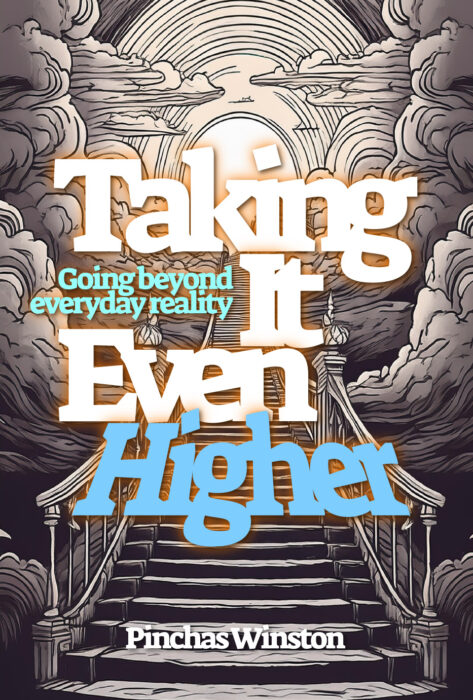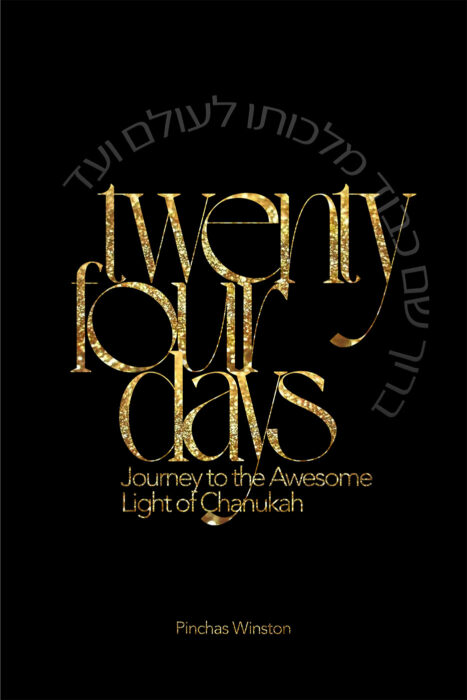Perceptions, Parashas VaEschanan, Issue #2059 - By Rabbi Pinchas Winston
THERE IS A difference between being frum, and living frum. It’s like being a soldier. Most soldiers are not soldiers. They are citizens forced to be soldiers because that is what the situation demands. But first chance they have to get out of the army and back to civilian life, they will take it.
Until that time, they will play the part of a soldier. They will dress and act the part. They will take commands from people whom, if they saw them in the civilian world, they might not even give the time of day. They will put up with conditions of life that back home they would never accept because that is what soldiers do.
There are other kinds of soldiers as well, the few who actually like being soldiers. They enlist on their own and stay beyond the need. They’re professional soldiers, meaning that they identify as soldiers, never as civilians. On the contrary, should the army close up shop and disband, they would be at a loss as to what to do with their lives. Their identity will disappear with the army.
When it comes to being a soldier, that may not be a good thing. When it comes to serving God, it is ideal. Yes, we’re all soldiers in God’s army, but not because we have to be or else. We serve, but not out of fear of disciplinary action. We accept our conditions, but not because we have no other choice. And we follow the orders of our “commanding officers,” but not just because of their “rank,” but because of the wisdom they have to guide us…even if they are younger than we are.
It should be that if someone were to ask us, “What would you do if you didn’t have to be Torah observant?” that we immediately feel lost. Just the thought of the idea should result in a sense of dread, emptiness, as if the world was coming to an end and there wasn’t anything we could do to stop it.
To look at two religious Jews standing side by side might not reveal much of a difference between the two of them. The uniforms would be the same. The words would sound similar. The activities would be identical. But the moment they would move and deal with life, the difference would quickly become apparent because we can tell when someone’s heart is not in what they are doing.
I’ve asked people the question, “Why are you frum?” and almost every time the person has been caught off guard and asked, “What do you mean?” I tell them, “Just what I asked,” at which point they start to think about the kind of answer they think they should give me.
Sadly, I never got an immediate and enthusiastic answer, save from a new ba’al teshuvah. He answered me, “Are you kidding?! This is LIFE! I thought I was living before I discovered Torah, but now I feel as if I was part of the living dead…a real zombie!”
He gets it. So many others do not. He became religious because his head told him to after learning enough information to intellectually obligate him. He didn’t want to, and he resisted in the beginning. “But truth is truth,” he told me, “and I could not imagine turning my back on it just because I would no longer fit into the world I came from.”
“At first,” he told me, “I was only concerned about getting it right, and fitting into the new world I had stumbled into, head first. But after a couple of years of that I still felt like I was missing out on something important, though I did not know what it was. looking around, I wasn’t sure that many others did either.”
So what changed? “I personalized it,” he told me. “Fitting in is always important, but you can live Torah through others, or an entire community. You have to develop your own personal relationship with God. You have to learn to love Him with your heart as well as your mind. Once I did that, what I had to do to properly serve God became what I want to do to serve Him. We became one and the same thing, and my sense of self and personal completion became so much more.”
How does one come to do that? This week’s parsha spells it out:
You have been shown in order to know that God, He is God; there is none else besides Him. (Devarim 4:35)
This verse doesn’t just mean that there is no god other than God Himself. It means that there is no meaning in life other than a relationship with Him. It means there is no true pleasure if it is not the result of such a relationship. And it means that the only route to personal fulfillment is through God and Torah.
But the verse also says, it is not just something God expects us to buy just because He said it. He went out of His way to show us things that would help us to intellectually understand why it is true, so that our hearts would get on board as well as our minds. And if we want that to happen for us as well, then we have to take advantage of what He left for us to see, so that we can know as well that He is God, and that, despite all the arguments the yetzer hara gives to the contrary, there really is nothing else in life besides Him.
Thirtysix.org
Rabbi Pinchas Winston
Shabbat Shalom




















